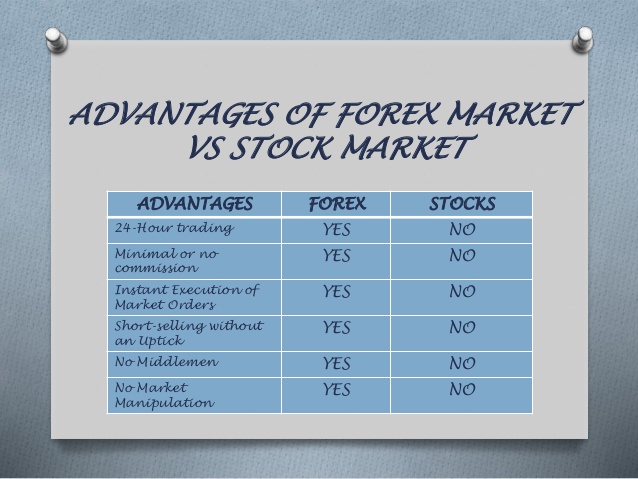
Either you are new to investing or an experienced investor who is looking for the next step in your career, an index fund could be a good choice for your portfolio. Index funds give you exposure to a range of investments, such as stocks and bonds, cash, consumer goods and even technology.
Index funds provide diversification in your portfolio to reduce the risk of big losses. They are a great way to invest because they tend to produce better annual returns. They may not be the right choice for everyone. Therefore, it is important to do your research.
A mutual fund company or brokerage account is the best way to purchase index funds. Index funds for nearly any index can be found at most of the major brokers. You can also purchase index funds from your employer's 401(k), Roth IRA plan.

The first step in buying an index fund is to decide where you want to invest your money. There are many options to choose between different indexes, which can reflect different regions, companies, or sectors. You can choose from a broad market index, like the S&P 500. Or, you can pick an index specific to a type of company, like small or large caps.
When deciding between two index funds it is important to take into account the expense ratio. An expense ratio measures how much it costs to invest into a fund. Look for an index fund that charges less than 0.2%. This will allow you to save $16 per month for every $10,000 you invest.
A key consideration when choosing an index funds is the share prices. If the share price is low, you may be able to purchase fewer shares than if the price is higher. This will help you avoid buying or selling shares at a higher price. Also, consider how risky the fund is. Index funds with corporate bonds usually have a higher risk. They can however provide higher returns.
To find out more about the fund, read the shareholder report. It is also important to review the prospectus. You should find detailed information on the fund's holdings, sector, and geographic regions on its website. This will help you to decide if the fund is right for you.

The fees and trading costs for an index fund should be considered. These fees can quickly add up. You'll want to find an index fund with low trading costs and a low expense ratio. If the fund costs more than the index it tracks, it could end up underperforming the index. You may also find special fees associated with buying and selling shares.
Easy and simple to purchase an index fund. You can buy them online through a brokerage account or through a mutual fund company. Just make sure to do your research and choose an index fund that's right for you.
FAQ
What is the distinction between marketable and not-marketable securities
The main differences are that non-marketable securities have less liquidity, lower trading volumes, and higher transaction costs. Marketable securities can be traded on exchanges. They have more liquidity and trade volume. These securities offer better price discovery as they can be traded at all times. However, there are many exceptions to this rule. Some mutual funds are not open to public trading and are therefore only available to institutional investors.
Non-marketable securities can be more risky that marketable securities. They usually have lower yields and require larger initial capital deposits. Marketable securities tend to be safer and easier than non-marketable securities.
A large corporation bond has a greater chance of being paid back than a smaller bond. Because the former has a stronger balance sheet than the latter, the chances of the latter being repaid are higher.
Investment companies prefer to hold marketable securities because they can earn higher portfolio returns.
What is the difference?
Brokers are individuals who help people and businesses to buy and sell securities and other forms. They manage all paperwork.
Financial advisors are experts in the field of personal finances. They can help clients plan for retirement, prepare to handle emergencies, and set financial goals.
Banks, insurers and other institutions can employ financial advisors. You can also find them working independently as professionals who charge a fee.
Consider taking courses in marketing, accounting, or finance to begin a career as a financial advisor. Also, it is important to understand about the different types available in investment.
What is the difference between stock market and securities market?
The securities market is the whole group of companies that are listed on any exchange for trading shares. This includes stocks, bonds, options, futures contracts, and other financial instruments. Stock markets are usually divided into two categories: primary and secondary. Large exchanges like the NYSE (New York Stock Exchange), or NASDAQ (National Association of Securities Dealers Automated Quotations), are primary stock markets. Secondary stock exchanges are smaller ones where investors can trade privately. These include OTC Bulletin Board, Pink Sheets and Nasdaq SmallCap market.
Stock markets are important as they allow people to trade shares of businesses and buy or sell them. The value of shares depends on their price. New shares are issued to the public when a company goes public. These shares are issued to investors who receive dividends. Dividends are payments made by a corporation to shareholders.
In addition to providing a place for buyers and sellers, stock markets also serve as a tool for corporate governance. Boards of Directors are elected by shareholders and oversee management. They ensure managers adhere to ethical business practices. The government can replace a board that fails to fulfill this role if it is not performing.
How are securities traded?
Stock market: Investors buy shares of companies to make money. Companies issue shares to raise capital by selling them to investors. Investors can then sell these shares back at the company if they feel the company is worth something.
The price at which stocks trade on the open market is determined by supply and demand. The price rises if there is less demand than buyers. If there are more buyers than seller, the prices fall.
There are two methods to trade stocks.
-
Directly from the company
-
Through a broker
Why is a stock called security?
Security refers to an investment instrument whose price is dependent on another company. It may be issued by a corporation (e.g., shares), government (e.g., bonds), or other entity (e.g., preferred stocks). If the underlying asset loses its value, the issuer may promise to pay dividends to shareholders or repay creditors' debt obligations.
How do I choose a good investment company?
You want one that has competitive fees, good management, and a broad portfolio. Fees are typically charged based on the type of security held in your account. While some companies do not charge any fees for cash holding, others charge a flat fee per annum regardless of how much you deposit. Some companies charge a percentage from your total assets.
Also, find out about their past performance records. A company with a poor track record may not be suitable for your needs. Companies with low net asset values (NAVs) or extremely volatile NAVs should be avoided.
You also need to verify their investment philosophy. Investment companies should be prepared to take on more risk in order to earn higher returns. If they are unwilling to do so, then they may not be able to meet your expectations.
What is security in the stock exchange?
Security can be described as an asset that generates income. Shares in companies is the most common form of security.
Different types of securities can be issued by a company, including bonds, preferred stock, and common stock.
The earnings per share (EPS), and the dividends paid by the company determine the value of a share.
A share is a piece of the business that you own and you have a claim to future profits. If the company pays you a dividend, it will pay you money.
You can always sell your shares.
Statistics
- The S&P 500 has grown about 10.5% per year since its establishment in the 1920s. (investopedia.com)
- US resident who opens a new IBKR Pro individual or joint account receives a 0.25% rate reduction on margin loans. (nerdwallet.com)
- For instance, an individual or entity that owns 100,000 shares of a company with one million outstanding shares would have a 10% ownership stake. (investopedia.com)
- Even if you find talent for trading stocks, allocating more than 10% of your portfolio to an individual stock can expose your savings to too much volatility. (nerdwallet.com)
External Links
How To
How to invest in the stock market online
You can make money by investing in stocks. There are many options for investing in stocks, such as mutual funds, exchange traded funds (ETFs), and hedge funds. The best investment strategy depends on your investment goals, risk tolerance, personal investment style, overall market knowledge, and financial goals.
Understanding the market is key to success in the stock market. This involves understanding the various types of investments, their risks, and the potential rewards. Once you are clear about what you want, you can then start to determine which type of investment is best for you.
There are three main types of investments: equity and fixed income. Equity is the ownership of shares in companies. Fixed income refers debt instruments like bonds, treasury bill and other securities. Alternatives are commodities, real estate, private capital, and venture capital. Each category has its pros and disadvantages, so it is up to you which one is best for you.
There are two main strategies that you can use once you have decided what type of investment you want. One strategy is "buy & hold". You purchase some of the security, but you don’t sell it until you die. Diversification refers to buying multiple securities from different categories. If you buy 10% each of Apple, Microsoft and General Motors, then you can diversify into three different industries. Multiplying your investments will give you more exposure to many sectors of the economy. This helps you to avoid losses in one industry because you still have something in another.
Another important aspect of investing is risk management. Risk management will allow you to manage volatility in the portfolio. A low-risk fund would be the best option for you if you only want to take on a 1 percent risk. A higher-risk fund could be chosen if you're willing to accept a risk of 5%.
Learning how to manage your money is the final step towards becoming a successful investor. Managing your money means having a plan for where you want to go financially in the future. A plan should address your short-term and medium-term goals. It also needs to include retirement planning. Sticking to your plan is key! You shouldn't be distracted by market fluctuations. Keep to your plan and you will see your wealth grow.